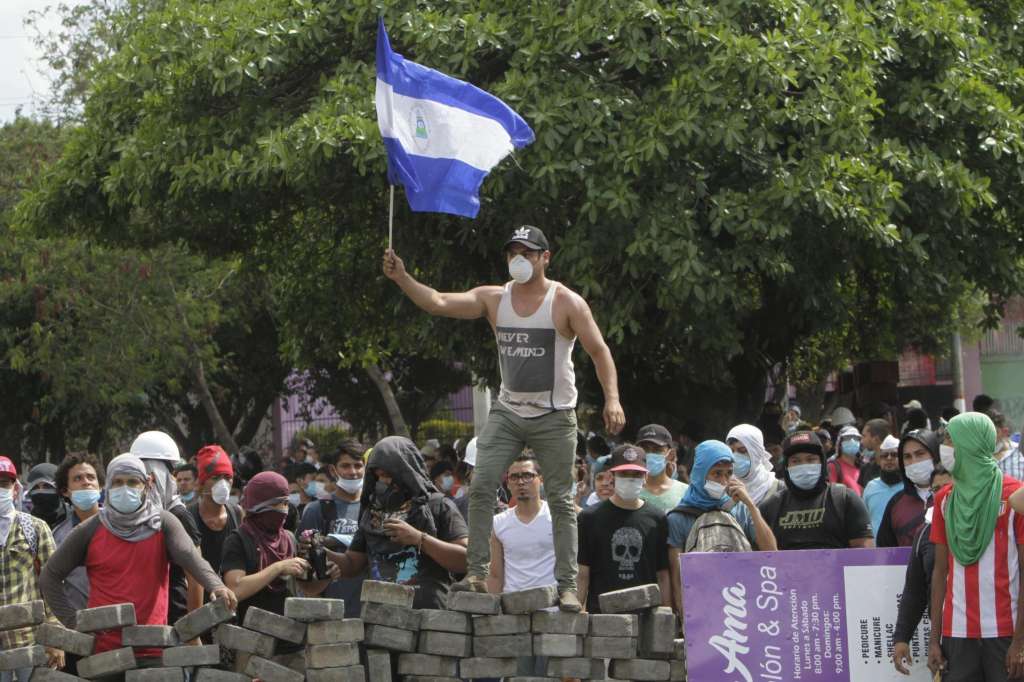(CNN) — Dozens of people died last week in Nicaragua as a result of anti-government protests, human rights groups there told CNN Friday — in contrast to the government’s official death toll, which stands at 10.
The Nicaraguan Center for Human Rights, based in the capital city of Managua, reported 43 deaths. The Permanent Commission on Human Rights said 58 people died. The government reported its latest death toll April 20.
The deaths came amid the largest street protests the country has seen since the civil war ended in 1990. Protesters clashed with security forces, and different groups among the demonstrators also clashed with each other.
Demonstrators in Managua threw rocks and set fires as police responded with tear gas and rubber bullets. Several television stations were taken off the air as the government tried to stem the unrest.
Nicaraguan Attorney General Inés Miranda on Thursday announced an investigation into the deaths.
“A responsible and formal investigation was started regarding the following acts: the loss of life of students, police and civilians; the injuries sustained by students, police and civilians; looting and property damage, both public and private,” Miranda told reporters.
A journalist who was covering the protest was among those killed, state media outlet El 19 Digital reported.
The unrest, mostly led by students, started when President Daniel Ortega tried to change the country’s social security system. He implemented a controversial pension reform resolution intended to halt the growing deficit. The changes increased contributions by workers and employers and reduced retired workers’ pensions.
Ortega revoked the resolution Sunday, putting an end to violent clashes. Peaceful protests continue in Nicaragua, with demonstrators now calling for Ortega’s resignation.
International community condemns violence
The Nicaraguan government has been accused of using excessive force against protesters and “arbitrarily (shutting) down media outlets covering the recent protests,” a human rights organization says.
“Human Rights Watch received credible accounts that suggest that police officers used excessive force to shut down demonstrations in several places across the country and that pro-government groups attacked peaceful protesters,” the group said in a statement.
The US State Department and the United Nations have condemned violence against protesters, whom the vice president compared with “vampires” who “feed off blood … (to) achieve advances in their political agenda.” Both institutions called for a peaceful resolution.
Nicaragua “needs to comply with their international obligations to guarantee that people are able to freely express their rights of freedom of expression and freedom to peacefully assemble,” UN Human Rights Office spokeswoman Liz Throssell said in a statement.
The US State Department issued a statement Monday ordering the departure of US government employees and their families. The department also urged travelers to reconsider travel plans to Nicaragua.
11 years in power
Ortega came to power as part of the Sandinista rebels who overthrew the Somoza dynasty in 1979. He fought against the US-backed contras during the 1980s and has remained a key ally to Venezuela.
He was first elected president in 1985, then ran unsuccessfully in 1990, 1996 and 2001. He was elected again in 2006, 2011 and 2016.
In the last presidential election, Ortega was elected in a landslide victory, with his wife as vice president. Critics have accused the couple of skirting laws while building a political dynasty.
Nicaragua’s constitution bars presidents from being re-elected and also bars candidates who are relatives of the sitting president from running.
In 2014, Ortega used his power to pressure lawmakers to do away with term limits.
The-CNN-Wire™ & © 2024 Cable News Network, Inc., a Time Warner Company. All rights reserved.

